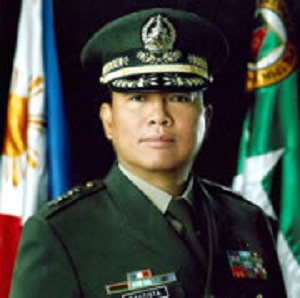Human Rights Watch (HRW) on Thursday scoffed at the military’s pronouncement that it would disband its paramilitary forces in 2016 when the insurgents would have been flushed out.
“Disbanding the paramilitary forces is a welcome move but the Armed Forces need not wait for 2016 to do this. It should dismantle them now,” HRW’s Asia researcher Carlos Conde said.
The HRW is the largest human rights organization based in the United States.
Lieutenant General Emmanuel Bautista, the Army commanding general, earlier said the paramilitary forces will be the first to go in the downsizing of the Armed Forces of the Philippines (AFP).
Bautista said dismantling the Citizen Armed Forces Geographical Unit (Cafgu) and the Special Citizens Active Auxiliaries (SCAA) by 2016 was within the time-frame of the Armed Forces’ strategy “Bayanihan’’ under the Aquino administration. By that time the military would be transitioning to external defense, he said.
Cafgu troops, estimated at between 50,000 and 60,000, have been deployed by the military to fight insurgents in remote areas.
Conde noted that the Cafgu and the SCAA had a long history of human rights abuses in the country.
He said the government should heed the recommendations of several countries during Tuesday’s Universal Periodic Review (UPR) at the United Nations Human Rights Council in Geneva to dismantle its paramilitary forces.
The United States urged the Philippines to “take new additional measures to ensure that the military exercises full control over Civilian Armed Forces Geographical Units and the police over Civilian Volunteer Organizations, holding these units accountable for the Philippines’ obligations under international human rights law,” Conde said.
He said it was unrealistic for the military to disband the paramilitary forces once the communist New People’s Army abandons its armed struggle.
“The government has a duty to protect human rights and punish state forces who violate these rights. This obligation is not contingent on the behavior of insurgent groups,’’ he said.
Selective report
Meanwhile, Filipino activist-members of the Philippine UPR Watch picketed UN headquarters in Geneva in protest of what they called the “selective’’ way the Philippine government reports on the human rights situation.
They said the report did not mention the failure to arrest retired Army major general Jovito Palparan over the 2006 abduction of activist students Sherlyn Cadapan and Karen Empeño, but “gloated’’ over the ratification of international instruments and the approval of bills to improve human rights.
“Palparan’s continued evasion of arrest and mockery of justice exemplifies the prevalent climate of impunity. This is probably the reason why the GPH failed to mention this important fact—to gloss over the nonexistence of justice for victims of human rights violations in the country and the continuing spate of rights abuses,’’ Cristina Palabay, Karapatan spokesperson and part of the UPR Watch delegation, said in an e-mail.
